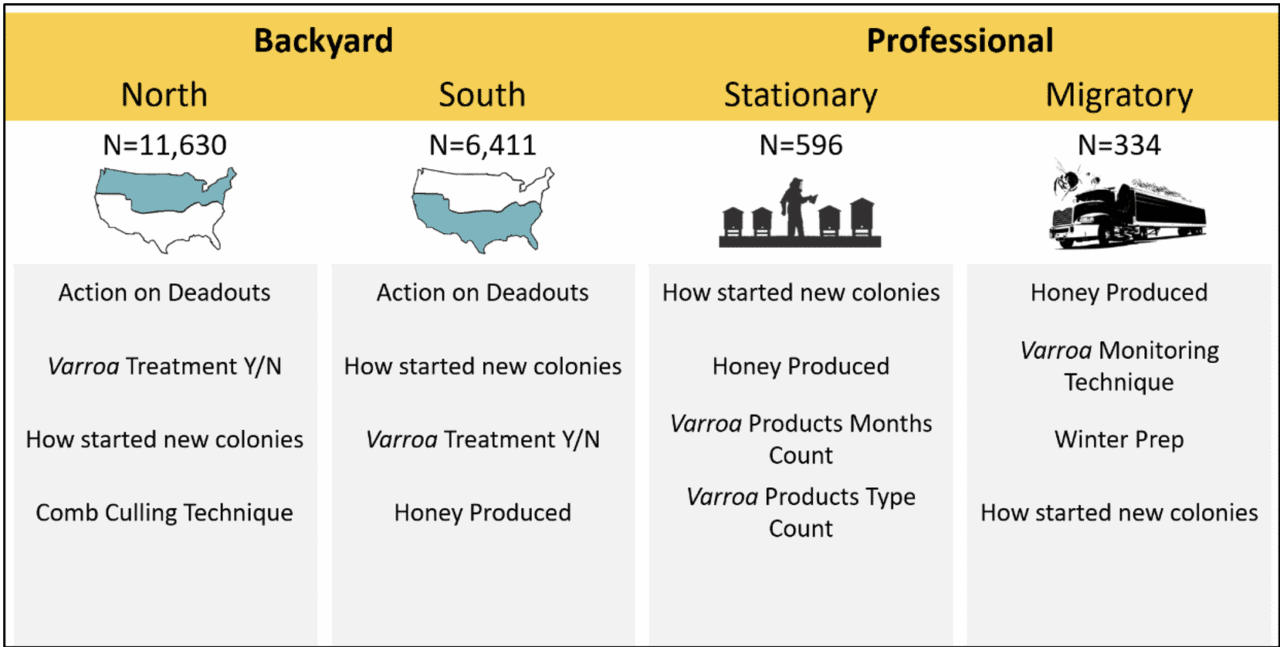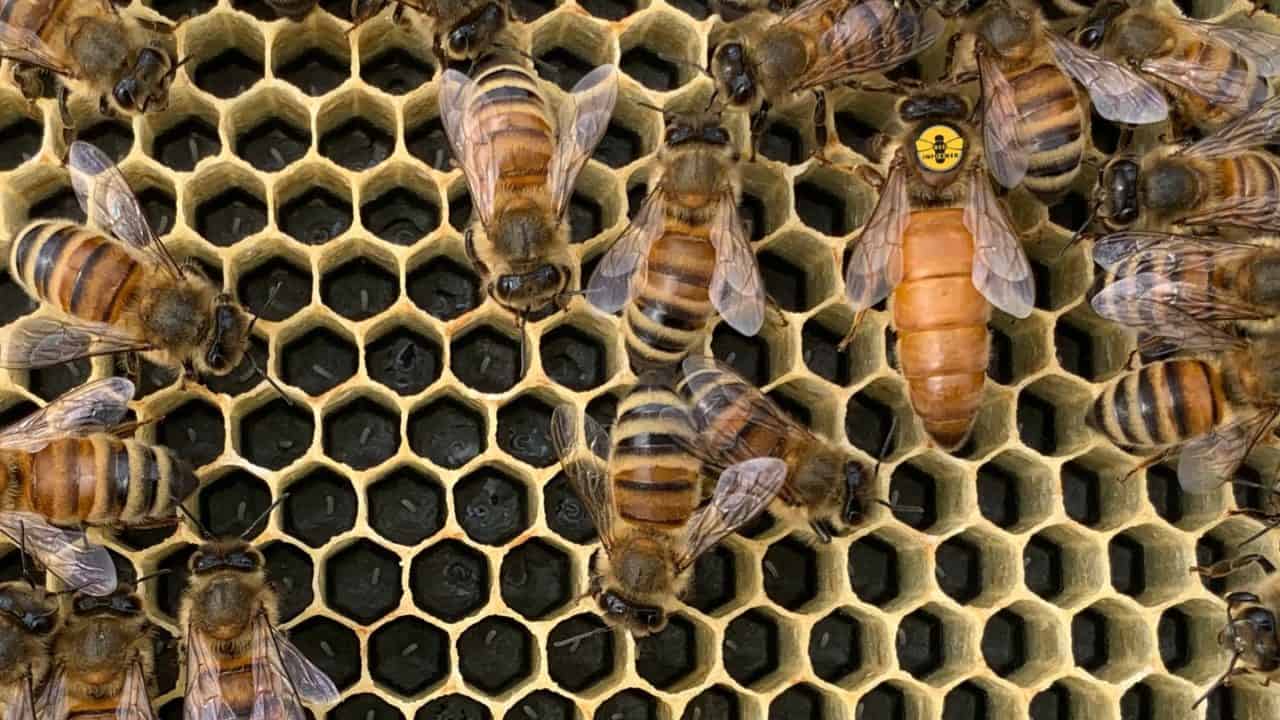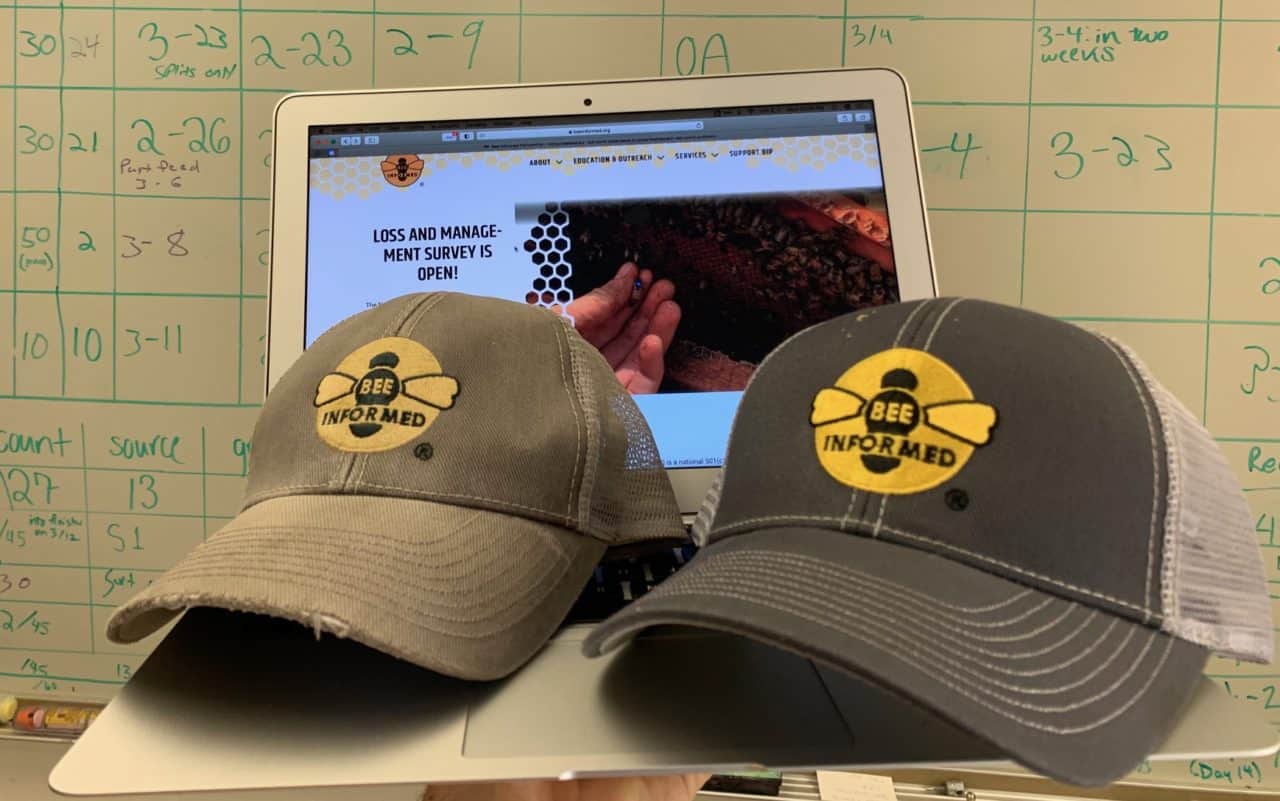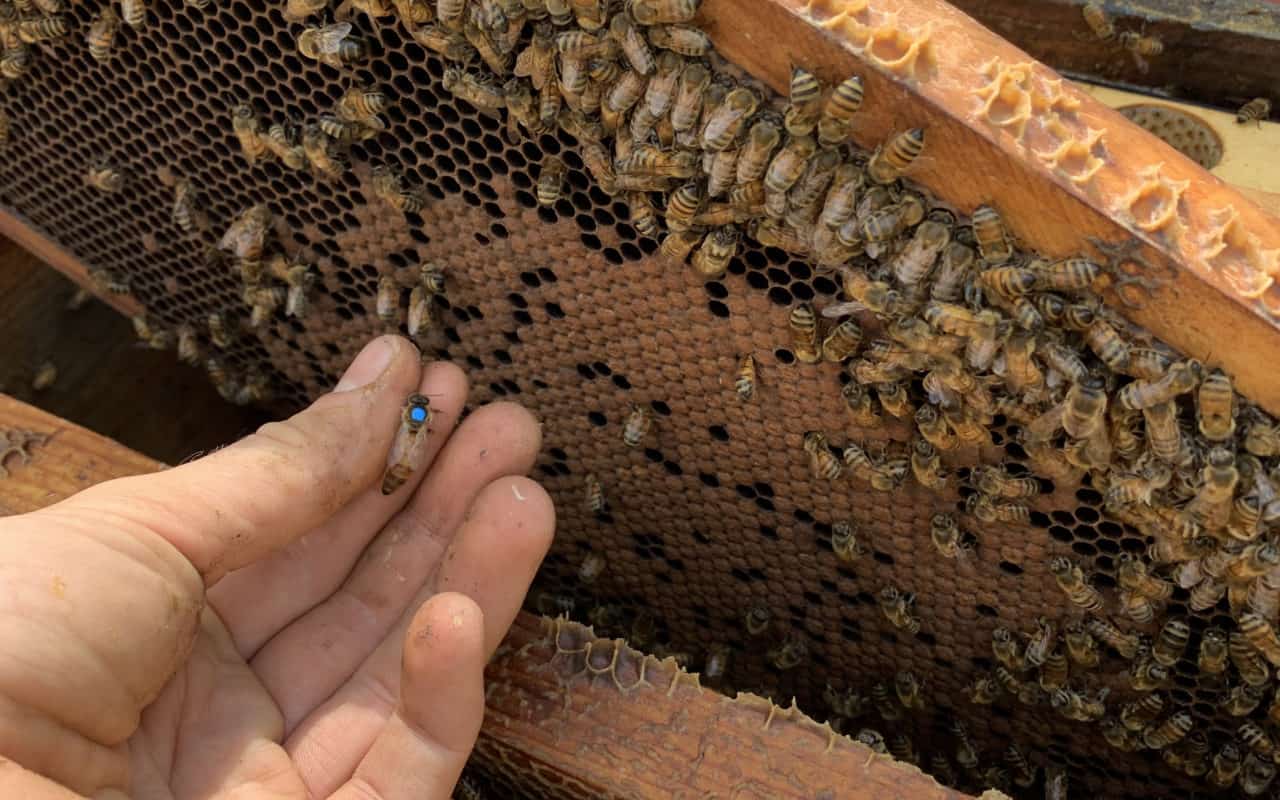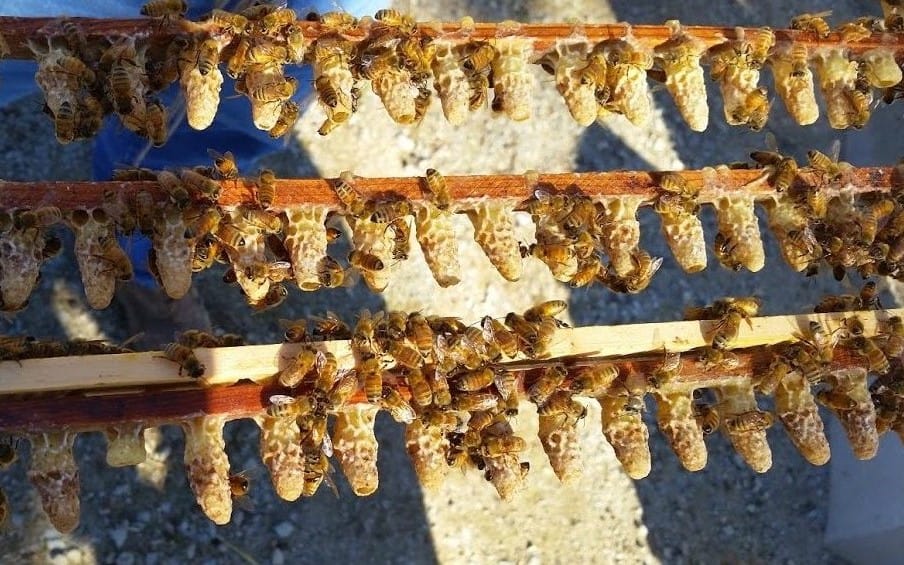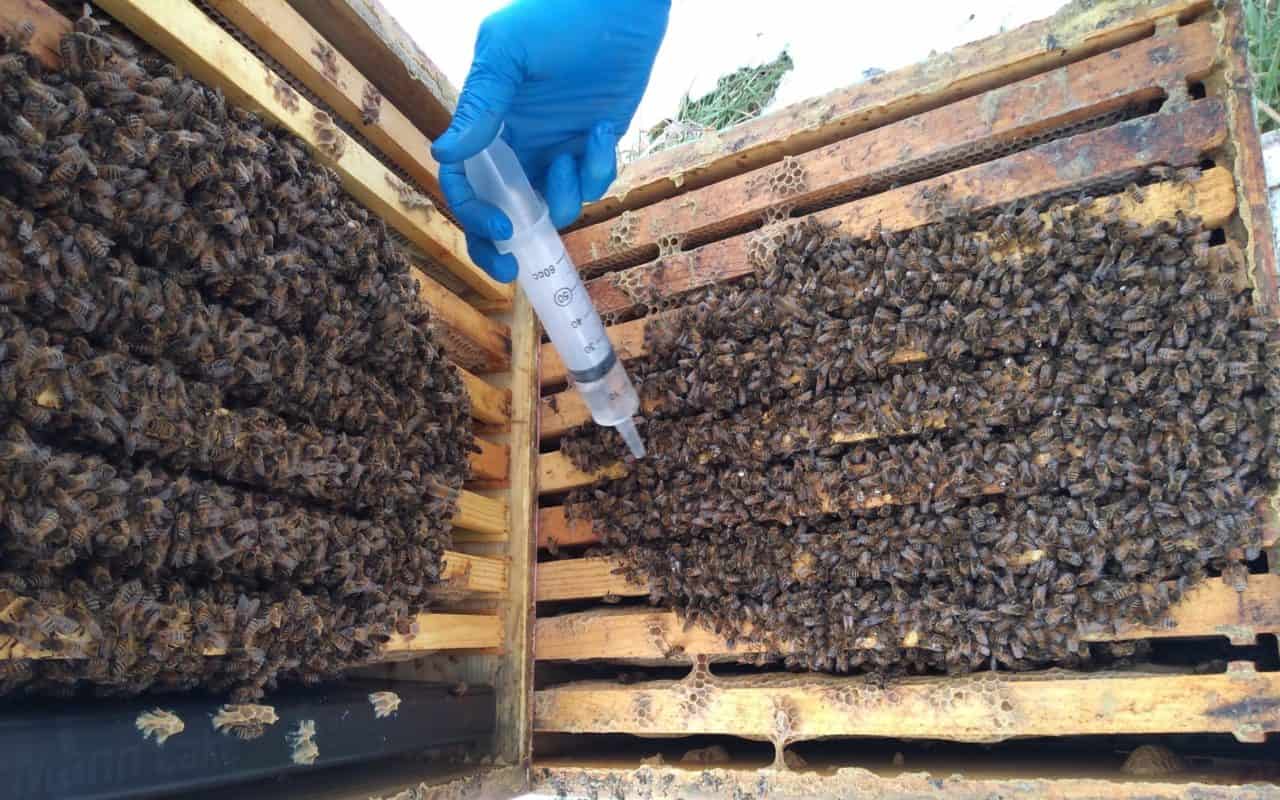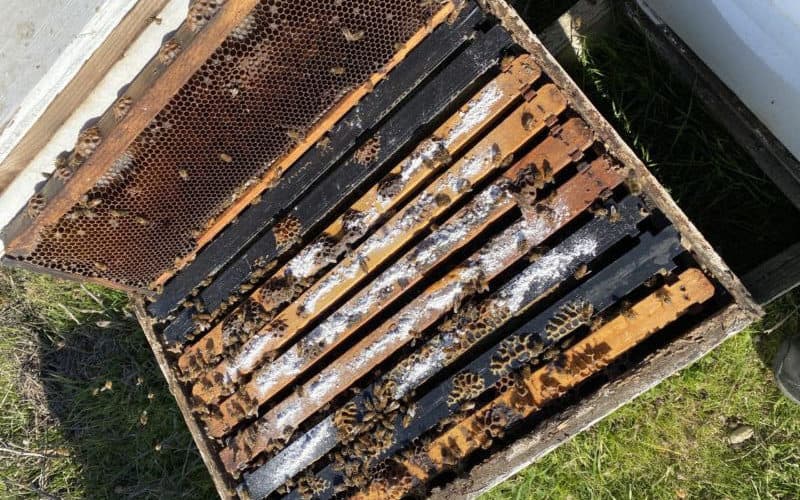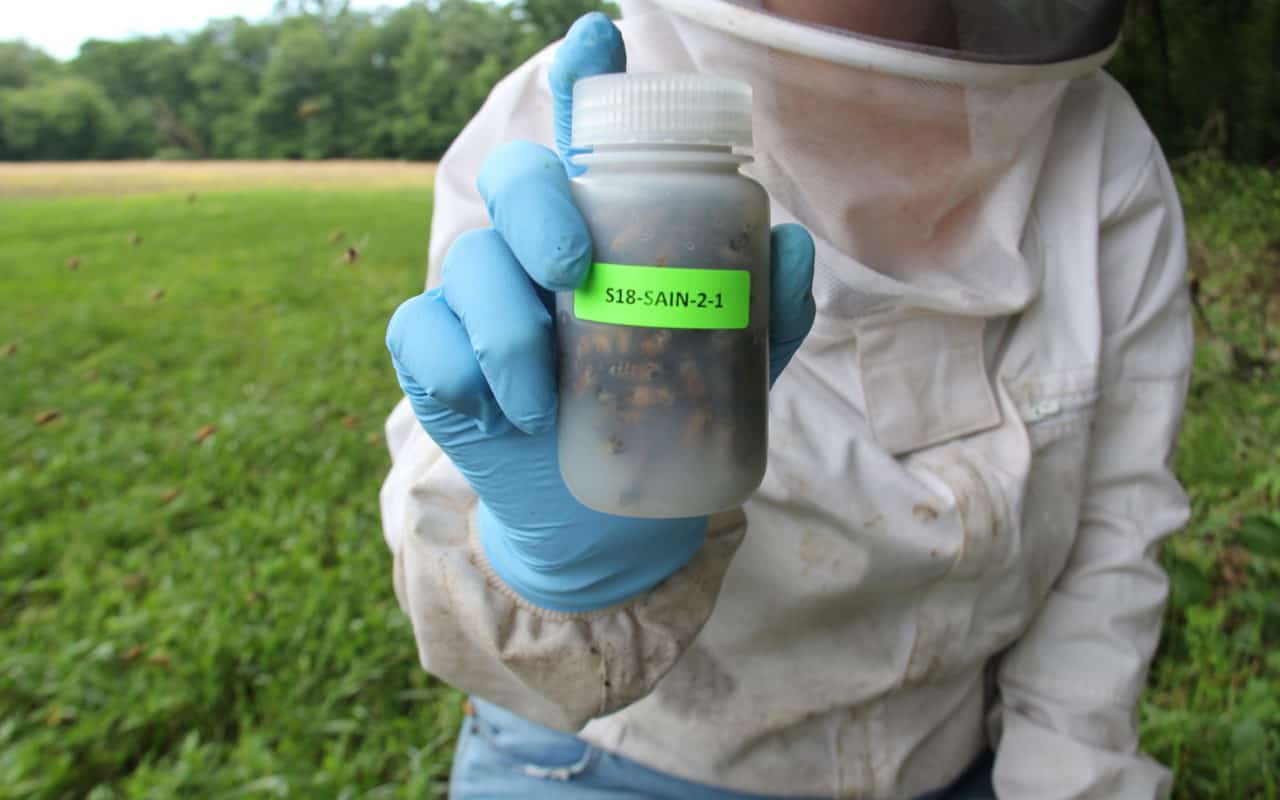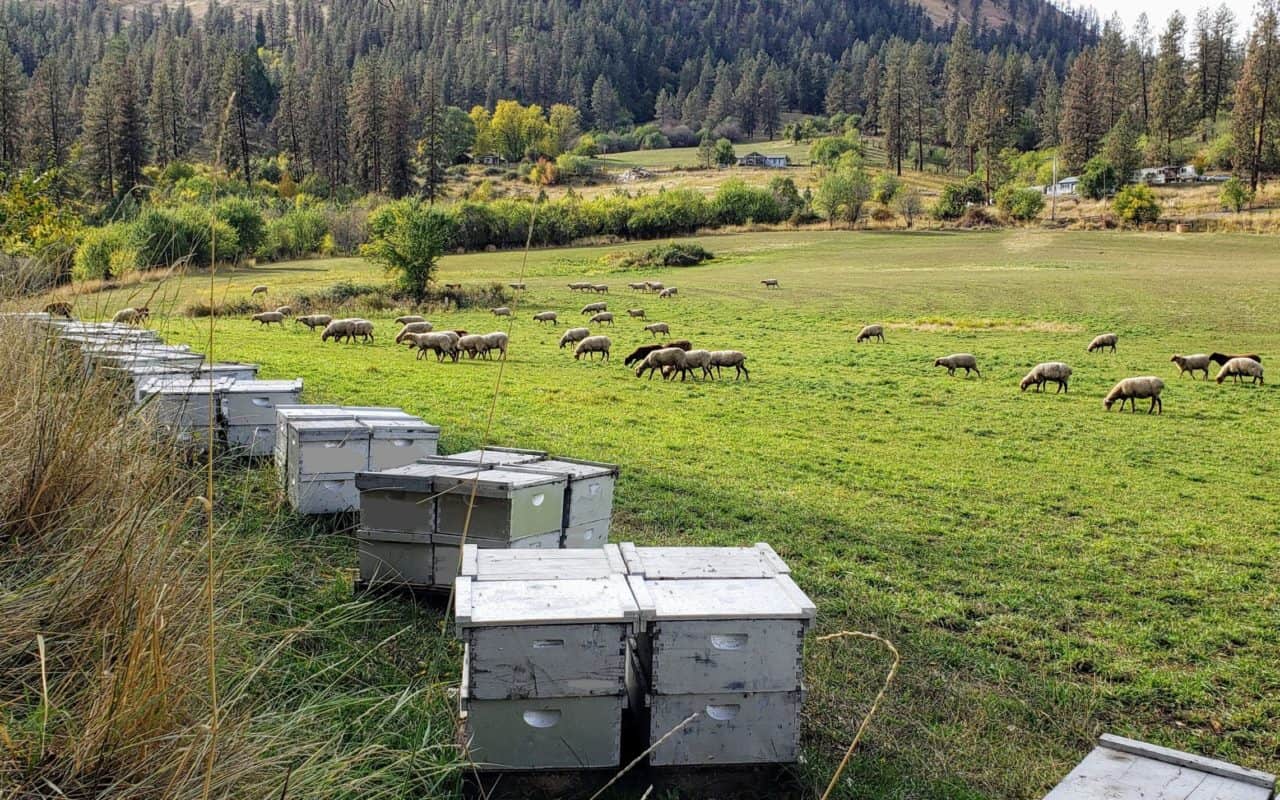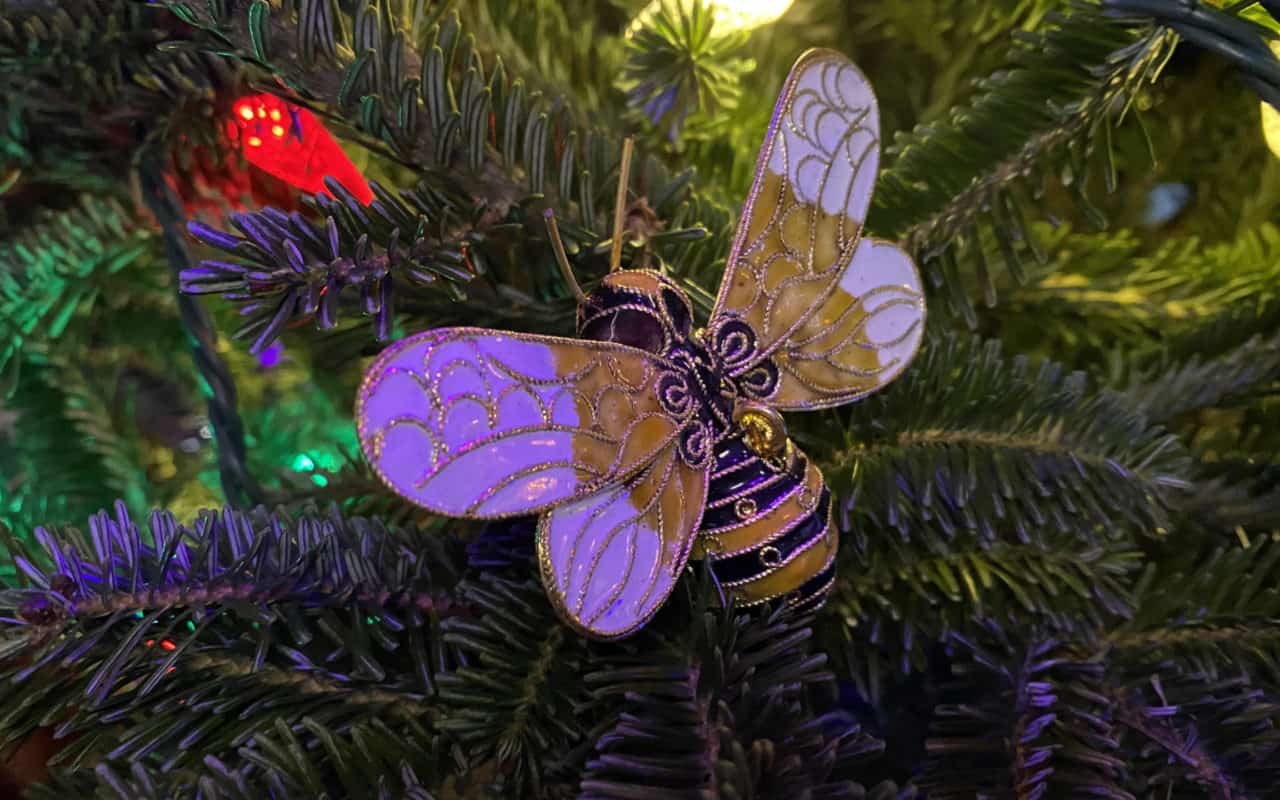By Selina Bruckner, Geoff Williams, Nathalie Steinhauer The Bee Informed Partnership Colony Loss and Management Survey month is almost over – time flies when you’re having fun preventing swarming, installing packages, and adding your supers! Have you taken the survey yet? If not, don’t miss out on even more fun! This year’s survey is the shortest it’s ever been! Take the survey here. Time also flies in terms of the years that the BIP survey has been conducted; it is celebrating its 15th birthday! The survey has come a long way since 2006. Here, we review some of the survey’s outputs so far. In total,…
Blog
We’ve listened to you: a shorter, better survey for professional beekeepers
Commercial and sideline beekeepers − the Bee Informed Partnership (BIP) Survey Team has worked hard to make our annual survey more relevant for you! We met with a group of commercial beekeepers to get input, and were given two major requests: First, to move away from an arbitrary April 1st survey start date. Second, to reduce the length of the survey. We then went to work! We addressed both of these requests, and also changed the focus of some questions to better reflect the concerns of the industry. Since its beginning in 2006-07, the BIP survey has used April 1st as the cutoff between winter…
This year’s Survey is mostly ‘new hat’!
Consistency is important. Not only in research but also in our daily lives and beekeeping. For example, as beekeepers we should consistently inspect our colonies for disease, for food stores, for adequate space! This is especially important at this time of the year when bees feel the urge to swarm. Another consistent activity we hope is in a beekeeper’s calendar: taking The Bee Informed Partnership’s Annual Colony Loss and Management Survey. As usual, the online survey went live on April 1st. In the first week, almost 2,000 beekeepers have participated. If you haven’t participated taken it yet, please consider doing so here: Take the survey.…
BIP National Loss and Management Survey Open!
The 2020-2021 Annual Loss and Management Survey is live! The Bee Informed Partnership team, in collaboration with the Auburn University Bee Lab, are enthusiastically inviting all U.S. beekeepers to take part in this year’s survey. The survey is open from April 1 to April 30, 2021. Take the Survey Today! The BIP survey is the longest national effort to monitor honey bee mortality rates in the U.S. The Loss survey was initiated in 2006 by the Apiary Inspectors of America. Then in 2010 the Management section was added in collaboration with the vanEngelsdorp Bee Lab at the University of Maryland. The survey not only estimates the…
The Great Bee Marathon
If you are an almond grower, a beekeeper or simply live in Northern California, you know where to find most of America’s honey bee colonies in late January through February. Close to two million honey bee colonies come from all over the United States to pollinate the almond blooms each year. But then what? If getting bees to California is like a sprint for beekeepers, what happens after is more like a marathon. When the last almond petals fall, the beekeepers’ most intensive work period begins. Lightning Speed Honey Bee Biology and their Life Cycle In nature, honey bees reproduce on two levels. At the…
What Does The New Ruling On Oxalic Acid In Honey Mean?
Update: The original post showed an image of oxalic acid being used for vaporization that was not labeled for use on honey bee colonies. Using oxalic acid that is not labeled for use for treating honey bee colonies is not recommended or endorsed by Bee Informed Partnership. Guest Blogger and Collaborator: Dr. Meghan Milbrath, Michigan State University On February 23, 2021, the FDA finalized a ruling that establishes an exemption from the requirement of a tolerance for residues of oxalic acid in honey and honeycomb. For many, this was no surprise, as it has been in the works (and open for public comment) for several…
Field Testing the Benefits of Probiotic Supplementation in Real World Commercial Beekeeping Operations
Photo credit: BIP California Tech Team Field Specialist Matt Hoepfinger.
In light of the rise in probiotic supplementation's popularity among beekeepers, the California State Beekeepers Association (CSBA) awarded Bee Informed Partnership (BIP) funding to test the colony health benefits of probiotic supplementation in commercial beekeeping operations. To do so, we tested two commercially available probiotic products: SuperDFM, manufactured by Strong Microbials, and Mann Lake's ProDFM. Field trials were conducted between fall 2019-spring 2020 and included colonies from commercial operations in Oregon and California. For each region, three bee yards were selected, and within each yard, four colonies were randomly assigned to one of three groups: SuperDFM; ProDFM; or No supplementation Negative Control, (2 regions x…
Sentinel Apiary Program 2020 Wrap-Up and 2021 Sign-Up
Happy New Year! The beginning of 2021 marks the end of the Sentinel Apiary Program's sixth successful year—and the beginning of an exciting new one. In 2020, beekeepers with 76 apiaries representing 394 colonies participated in the Sentinel Program. The University of Maryland lab processed almost 2,000 Sentinel samples over the season to monitor Varroa and Nosema! You can see in the map of Sentinel Apiary Locations shown below that we worked with beekeepers from six of the nine NOAA climatic regions (the regions with the most consistent climates across the US). The newly released Sentinel 2020 End of Year Report details 2020's seasonal data…
The Bee Informed Partnership Field Specialists’ Report on 2020 Commercial Beekeeping Trends
The Bee Informed Partnership's Tech Transfer Team offers a honey bee colony health monitoring program tailored to meet the specific needs facing commercial beekeepers. The Tech Transfer Team program's Field Specialists follow commercial beekeeping operations during their yearly migrations across the country, to provide pollination services and producing honey (Figure 1). Field Specialists perform colony health inspections, on-site testing for several important honey bee pests and diseases, including the destructive Varroa mite, collect samples if additional laboratory testing is required, and consult with the participating beekeepers regarding their colony health management plan. In 2020 alone, BIP's Tech Transfer Team collectively inspected over 13,000 colonies, put…
Happy Holidays from Bee Informed Partnership!
Season’s Greetings! As the Holiday season approaches, The Bee Informed Partnership team would like to express our sincere gratitude to all of you for the support you’ve shown throughout this year! You have helped us push through many obstacles that the global pandemic has put in front of so many nonprofits, and we can’t thank you enough. With your support, BIP serves the U.S. beekeeping community through several programs: The Technical Transfer Team Program offers commercial beekeepers access to a wide range of resources and reports on the health of their colonies to help them improve on their management practices to strengthen the health of…
